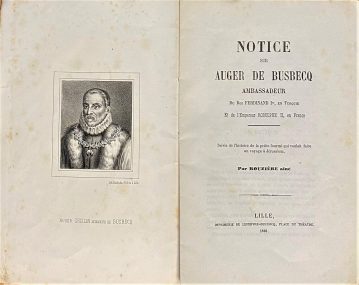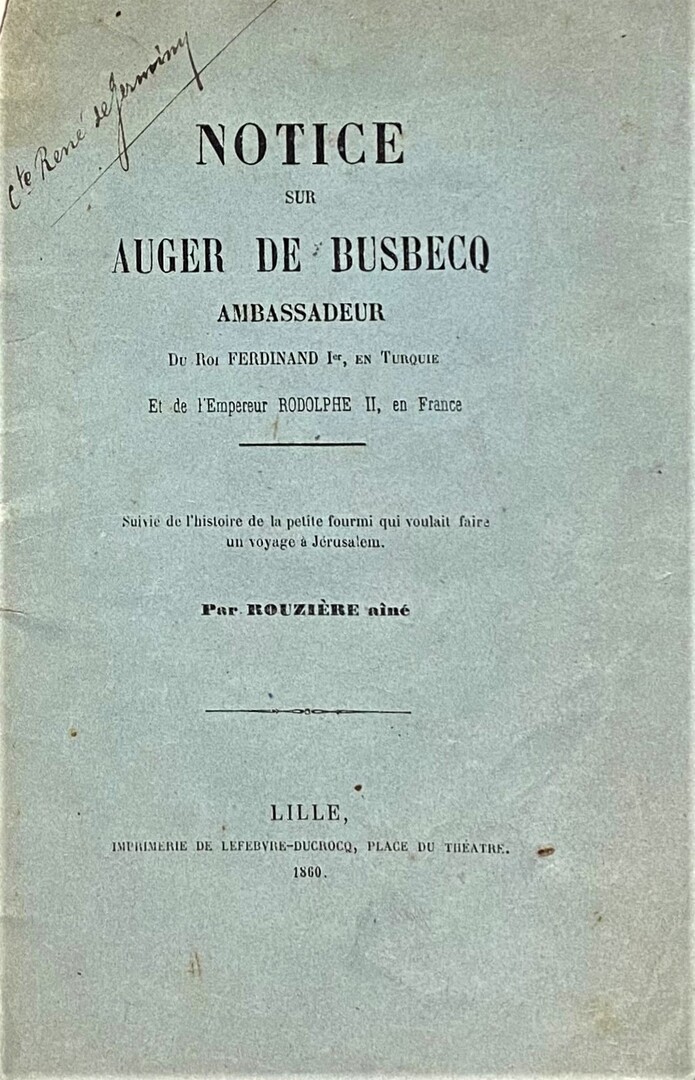Notice sur Auger de Busbecq, Ambassadeur du Roi Ferdinand Ier, en Turquie et de l’Empereur Rodolphe II, en France. Suivie de l’histoire de la petite fourmi qui voulait faire un voyage à Jérusalem.
Rouziere, Ainé.
Synopsis
RARE. Ogier Ghiselin de Busbecq (1522 – 1592) was a 16th century Flemish writer, herbalist and diplomat in the employ of three generations of Austrian monarchs. He was ambassador of the Holy Roman Emperor at the Sublime Porte (the Turkish Sultan’s court in Constantinople) from 1555-62. In 1581 he published a book about his time there, “Itinera Constantinopolitanum et Amasianum”, re-published in 1595 under the title of “Turcicae epistolae” or the Turkish Letters. His intellect led him to advanced studies at the Latin-language University of Leuven, where he registered in 1536 under the name Ogier Ghislain de Comines.
In 1554 and again in 1556, Ferdinand named him ambassador to the Ottoman Empire under the rule of Suleiman the Magnificent. His task for much of the time he was in Constantinople was the negotiation of a border treaty between his employer (the future Holy Roman Emperor) and the Sultan over the disputed territory of Transylvania. He had no success in this mission while Rustum Pasha was the Sultan’s vizier, but ultimately reached an accord with his successor Semiz Ali Pasha. During his stay in Constantinople, he wrote his best known work, the Turkish Letters, a compendium of personal correspondence to his friend, and fellow Hungarian diplomat, Nicholas Michault, in Flanders and some of the world’s first travel literature. These letters describe his adventures in Ottoman politics and remain one of the principal primary sources for students of the 16th century Ottoman court. He also wrote in great detail about the plant and animal life he encountered in Turkey. His letters also contain the only surviving word list of Crimean Gothic, a Germanic dialect spoken in some isolated regions of the Crimean at the time.
He returned from Turkey in 1562 and became a counsellor at the court of Emperor Ferdinand in Vienna and tutor to his grandchildren, the sons of future Emperor Maximilian
II. Busbecq ended his career as the guardian of Elisabeth of Austria, Maximilian’s daughter and widow of the French king Charles IX. This study is an analysis of de Busbecq’s works.
Not at COPAC.








